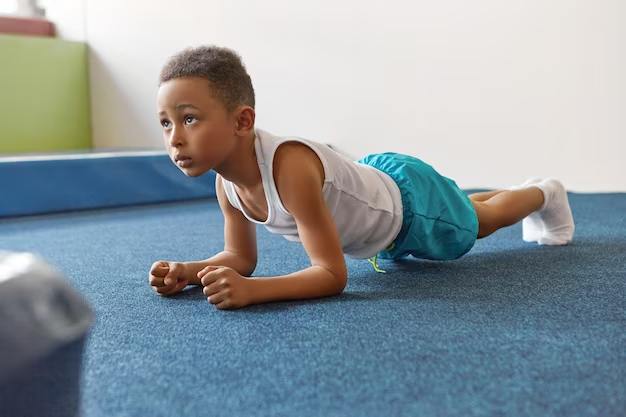Sleep is a critical aspect of a child’s overall health and development. In South Africa, where childhood obesity rates and sedentary lifestyles are on the rise, it is essential to understand the role of exercise in promoting healthy sleep patterns for children. Regular physical activity not only benefits a child’s physical well-being but also has a positive impact on their sleep quality and duration. By encouraging and prioritizing exercise, parents and caregivers can help South African children establish healthy sleep habits and improve their overall sleep health.
Regular exercise offers numerous benefits for children’s sleep:
- Enhanced Sleep Quality: Engaging in physical activity has been shown to improve the overall quality of sleep. Exercise can help children fall asleep faster, experience fewer nighttime awakenings, and enjoy more restorative sleep. The exertion during exercise stimulates the body, leading to a greater need for recovery during sleep.
- Longer Sleep Duration: Children who participate in regular physical activity tend to have longer sleep durations. Physical exertion during the day helps children feel more tired at night, increasing the likelihood of a full night’s sleep. Longer sleep duration is essential for optimal growth, development, and cognitive functioning.
- Reduced Sleep Disruptions: Regular exercise can help reduce the likelihood of sleep disruptions such as sleepwalking, nightmares, or restless legs syndrome. Physical activity promotes a healthier sleep-wake cycle and helps regulate the body’s internal clock, leading to more stable and consistent sleep patterns.
- Improved Daytime Alertness: Exercise can increase daytime alertness and reduce daytime sleepiness in children. Regular physical activity boosts energy levels, promotes mental alertness, and enhances overall cognitive functioning, allowing children to be more focused and engaged during the day.
- Reduced Risk of Sleep Disorders: Engaging in physical activity has been associated with a lower risk of sleep disorders such as sleep apnea and insomnia in children. Regular exercise helps maintain a healthy body weight, reduces the likelihood of obesity-related sleep disorders, and promotes overall respiratory health.
To encourage and support exercise for South African children’s sleep, here are some practical tips:
- Set a Daily Exercise Goal: Aim for at least 60 minutes of moderate to vigorous physical activity every day for children. This can include activities such as cycling, running, playing sports, dancing, or active play at home or in school.
- Create a Structured Routine: Establish a consistent exercise routine that incorporates physical activity into a child’s daily schedule. This helps make exercise a regular and enjoyable part of their day.
- Encourage Outdoor Play: Encourage children to engage in outdoor play, allowing them to explore their environment, interact with peers, and engage in physical activities that promote movement and exercise.
- Be a Role Model: Set an example by being physically active yourself. When children see their parents or caregivers participating in regular exercise, they are more likely to embrace an active lifestyle.
- Limit Screen Time: Encourage children to reduce sedentary behaviors such as excessive screen time or prolonged sitting. Set reasonable limits on screen usage and promote alternatives that involve physical activity.
- Make Exercise Fun: Find activities that children enjoy and make exercise fun. Incorporate games, challenges, or family activities that involve movement and physical exertion.
- Prioritize Safety: Ensure that children participate in age-appropriate activities and provide necessary safety measures, such as helmets for cycling or appropriate protective gear for sports.
It is important to note that vigorous exercise close to bedtime may have a stimulating effect and make it harder for children to fall asleep. Therefore, it is recommended to finish intense exercise at least a few hours before bedtime.
In conclusion, exercise plays a vital role in promoting healthy sleep patterns for South African children. Regular physical activity not only benefits their physical health but also enhances sleep quality, duration, and overall well-being. By prioritizing and encouraging exercise as part of a child’s daily routine, parents and caregivers can support healthy sleep habits and set the foundation for a lifetime of good sleep health.










